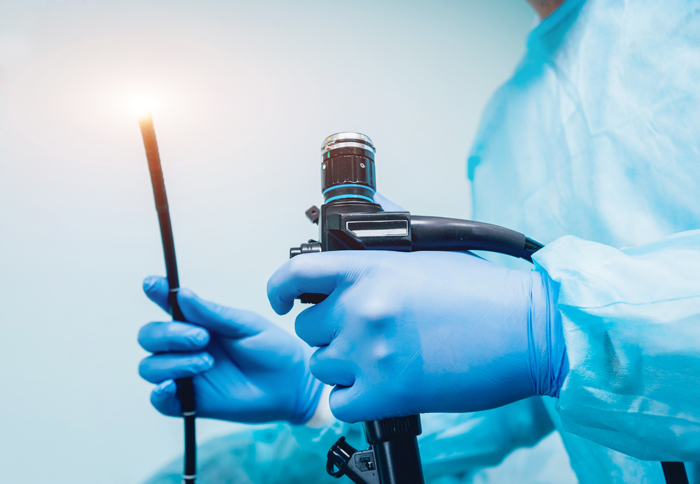Urology - Minimally Invasive Urological Treatment
Urology mainly deals with the male and female urinary systems. This mostly involves the kidney, ureters, bladder, and urethra. Minimally invasive urological treatment is a type of surgery in which your doctors utilize several techniques that involve negligible damage to your body. Minimally invasive urological treatments are surgeries that rectify any issues in your urological system without causing much trauma or injury to you. There are several kinds of minimally invasive urological treatments. Urology doctors in Jaipur will decide what treatment will suit you the best, depending on your condition.

What is minimally invasive urological treatment?
Minimally invasive urological treatment is a type of surgery that rectifies any issues with your urological system, namely your kidneys, ureters (tubes that pass urine from your kidneys to your bladder), bladder (where your urine is stored), and urethra (a small tube that expels urine out from your body). Various procedures like laparoscopy (surgeries that utilize small incisions the size of a keyhole), robotic (using a robot to assist in surgery), and single port (surgery using only one incision) are some of the minimally invasive urological options available. As these treatments involve less trauma, your recovery rate is faster, and there are fewer complications.
Who qualifies for the procedure?
Any man or woman facing issues with your urinary system, including having problems in urinating, are good candidates for minimally invasive urological treatment. Other individuals who qualify for this treatment are as follows:
- You suffer from moderate to severe symptoms of Benign Prostate Hypertrophy (BPH) (enlargement of the prostate that may block the flow of your urine).
- You suffer from blood in your urine.
- You have bladder stones.
- You have a urinary tract obstruction.
- You face difficulty in completely emptying your bladder.
- You may have bleeding from your prostate.
- You urinate extremely slowly.
- You have taken medication for BPH, but the issue persists.
- It also depends on how healthy you are, your personal choice, and the size of your prostate.
To better understand if minimally invasive urological treatments are suitable for you, a urology specialist in Jaipur can help clear your doubts.
You can also request an appointment at Apollo Spectra Hospitals, Jaipur, Rajasthan.
Call 18605002244 to book an appointment.
Why is the procedure conducted?
Minimally invasive urological treatment is conducted to meet the surgical needs of individuals suffering from any urological system-related conditions, including the kidney, ureters, bladder, and urethra. Minimally invasive urological treatment is safe and effective, with less complications associated with it than open surgeries. This highlights why minimally invasive urological treatment use has gained popularity over the years.
What are the benefits?
The benefits are as follows.
- Minimal anesthesia required
- It may not require admission as it can be done as an outpatient procedure.
- It is associated with fewer complications when compared to open surgeries.
- Less pain associated postoperatively.
- Less damage to your body due to smaller incisions.
- Shorter hospital stays
- Fewer complications when compared to open surgeries.
What are the risks or complications?
Risks associated with anesthesia, bleeding, infection or a need for repeat surgery can occur with minimally invasive urological treatment.
Complications like urinary tract infections, blood in your urine, erectile dysfunction (inability to maintain a firm erection) or (rarely) retrograde ejaculation (backward flow of semen into the bladder instead of out from the penis) may occur. If you have any doubts, you can search for urology doctors near me, urology hospitals in Jaipur or
Request an appointment at Apollo Spectra Hospitals, Jaipur, Rajasthan.
Call 18605002244 to book an appointment.
Correction of a pelvic organ prolapse, reconstruction of the urethra and vagina, removal of the prostate gland, removal of kidney stones or orchiopexy (removal of an undescended testicle from the scrotum) are some of the conditions for which minimally invasive urological treatment can be performed.
Robotic-assisted surgeries for sparing nerves while operating, laparoscopic surgeries, percutaneous or keyhole surgeries, and brachytherapy, where seeds are inserted to deliver high doses of radiation, especially for cancers, are some of the types of minimally invasive urological treatments.
Post-surgery, you will require around three to four weeks for your cuts or incisions to heal. You will be able to return to work in approximately 14 to 21 days.
Our Doctors
DR. SHIV RAM MEENA
MBBS, MS (Gen Surger...
| Experience | : | 13 Years Experience |
|---|---|---|
| Speciality | : | Urology... | Location | : | Lal kothi |
| Timings | : | Mon - Sat : 9:00 AM ... |
Our Top Specialities
NOTICE BOARD
CONTACT US
CONTACT US
 Book Appointment
Book Appointment



.svg)
.svg)
.svg)
.svg)








